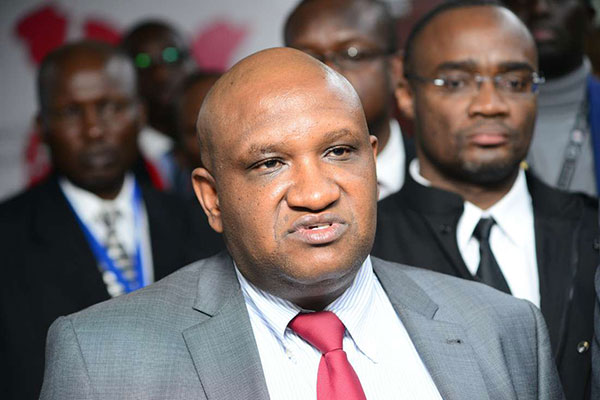The Kenya Revenue Authority (KRA) is targeting the E-Commerce sector as the government struggles to mint out ways to plug deficits that were exacerbated by tax relief measures announced by President Uhuru Kenyatta last month.
On Thursday, the taxman directed business owners trading on digital platforms to charge Value Added Tax (VAT) on their transactions and remit the taxes to KRA.
Kenya’s E-Commerce sector is worth an estimated to be worth Ksh5 billion and represents an attractive proposition for the taxman to yield a shilling or two.
The Commissioner for Domestic Taxes, Elizabeth Meyo said in a statement that KRA had “noted with concern” that some digital business owners had failed to charge VAT as required by law.
“KRA wishes to inform such persons that they are obligated under the VAT Act, 2013 to charge and remit VAT to all sales made through their digital platforms and the commissions charged to the vendors for the use of their digital platforms,” said Ms. Meyo.
“All non-compliant traders are hereby advised to comply to avoid penalties and interests on outstanding taxes failure to which appropriate action will be taken in accordance to the law. Where fraud will be detected, appropriate criminal proceedings shall be brought against the offenders,” said the Commissioner.
The Finance Act 2019, sought to clarify that income from digital transactions are VAT payable.
In March, President Uhuru Kenyatta announced a raft of economic measures to cushion the public following the outbreak of the Coronavirus pandemic.
It is estimated that the measures that have now been passed by parliament which include 100% relief Pay as You Earn (PAYE) for all employees earning below Ksh24,000 and reduction of VAT from 16% to 14% will cost the government Ksh122.25 billion in taxes according to the Parliamentary Budget Office (PBO).
Even before the outbreak of Coronavirus in the country, the Budget Policy Statement (BPS) presented to parliament by Treasury showed that the government was planning to borrow Sh566 billion to plug shortfalls.
Documents shared by the COVID-19 Fund show that the National Treasury has contributed Ksh150 million to the warchest meaning that the money had been redirected from other projected spending.
Speaking during a TV interview on Thursday, National Assembly Budget and Appropriations Committee Chairperson Kimani Ichung’wa said that parliament would have little option but to cut non-essential spending in all arms of government or redirect funds earmarked for President Kenyatta’s Big Four Agenda to the war against the pandemic.
All this put KRA in a tough spot.













Leave a comment